After eight years of university and numerous board and placement exams, I’ve been a human guinea pig for all types of study techniques and pre-event “nutrition” – all night cram sessions fuelled by Red Bull and Cadburys, big bowls of Weetbix with sugar for breakfast (what was I thinking?!) and somewhat more “radical” approaches like actually getting some sleep!
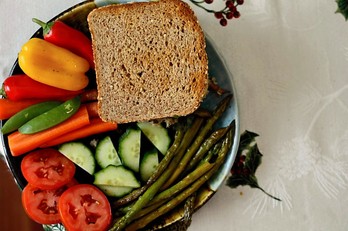
A long exam is like a mental triathlon in which endurance is critical. If you get your food and drink spot on, you can energise your system, improve your alertness and sustain yourself through the long and sometimes gruelling exam hours. The wrong dietary choices can make you feel sluggish, jittery, or plain freaking burnt out. These nutrition tips will help you perform at your best on exam day, so you walk out of there smiling, not dying.
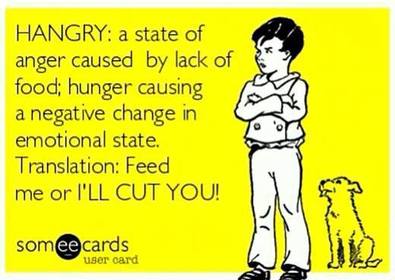
I remember an all night cram session the night before my final veterinary board exam in front of four senior vets. It was the same night my dog ran away from home in a November storm and I hadn’t eaten any dinner - not good! I passed, but I think I got off easy because at 8 a.m. I was the first one up, plus they probably took one look at my hagged appearance and felt sorry for me.
Even if you normally avoid eating when you’re nervous, try to eat when you feel physically hungry - whether that’s two or seven times per day. Very simply, your brain needs the energy from food to work efficiently. You need to keep your mental focus on your exam and not on your hunger. If you are hungry but you really can’t stomach food, then try having a green smoothie or a vegetable juice.
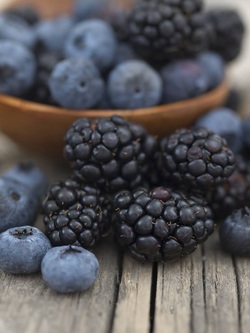
Some higher-protein foods can lead to greater mental alertness, such as organic free range eggs, raw nuts, and natural yoghurt. High in omega 3 fatty acids (i.e. stuff your brain loves) are fish (sustainably farmed please), walnuts, blueberries, sunflower seeds, flaxseed, figs, and prunes.
If you eat breakfast, yummy brain-boosting options might be quinoa porridge with coconut milk, walnuts and banana, Spanish omelette with kale and lots of vegetables, or unpasteurised miso and avocado on sprouted grain toast. In terms of vegetables, raw carrots, capsicums, Brussels sprouts, spinach, broccoli, and asparagus are very good choices indeed.
However, if you don’t normally eat a big breakfast, don’t make the mistake of thinking a huge meal will help take you from meh to miraculous – your body won’t be used to it and the energy used to digest that mother load will take away from your ability to think!
Personally, I consider fruit to be excellent brain fuel. It doesn’t take a back-to-back viewing of The Lord of the Rings to digest, leaving you with plenty of energy for mental processing. Try watermelon, kiwifruit, oranges, berries, or bananas – by themselves or in a beautiful brain boosting fruit salad! Try this Third Eye Smoothie for some serious brain food and omega 3s.
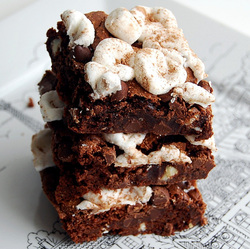
On exam day (and ideally most of the time!), stay away from foods made of white flour, such as biscuits, cakes, and muffins, which require added time and energy to digest. Also avoid foods that are high in refined sugar, such as mainstream chocolate, instant desserts, and lollies - these will send you off on a sugar rollercoaster ride of highs and lows – not what you want during your long exam. But if you’re reading this, you’re probably already far beyond those…. far beyond…. :)
Avoid having turkey or chicken before an exam as it contains L-tryptophan, an essential amino acid which helps your body produce serotonin which in turn, makes you feel sleepy. Before you smug vegetarians get too excited (as I did), OD-ing on nuts and seeds or legumes can have the same zombifying effect! Also avoid certain food combinations such as animal protein and starch together. These substances require added time when they have to be digested together, which all takes away juice from the motor in your head where it’s needed.
When eaten alone, starchy carbohydrates make you feel more relaxed than alert. So whilst a wholegrain pasta with organic tomato sauce may be a good option for the day before the exam, it may slow you down on the actual exam day. Try not to eat rice or potatoes in large quantities, as this can make you feel heavy and sleepy. As much as I hate to admit it, hot chips (my vice) are not an ideal exam food!
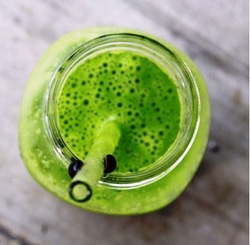
Make sure you drink enough pure filtered water and/or herbal tea before and during your exam. Green vegetable juices are even more hydrating as the nutrients in them will pull water into the cells as they’re absorbed. If you can bring a green juice into the exam hall and deal with the snide remarks you’ll get from (undoubtedly jealous) classmates, then by all means have at it.
What about coffee? I hear you ask (scream?). Despite their popularity as essential cram drinks, tea and coffee will only dehydrate you and send you running to the loo so many times during your exam you’ll miss out on half the allowed time. Dehydration can reduce your concentration, feel faint, and sap your energy. Don’t wait until you’re thirsty to drink a glass of water. If you wait until you’re thirsty, it means your body is already dehydrated.
5. Avoid brain blocking beverages.
This may seem like a no-brainer but it’s been done - avoid alcohol completely on exam day. Obviously, you can’t ace your exam if you’re blotto, have a headache, are feeling nauseous, or vomit on your paper. In general, reduce your drinking around exam time to avoid hangovers, dullness, and excessive fatigue.
Avoid sugary drinks like softdrink. Avoid caffeine, as it can increase your nervousness. If you are accustomed to drinking coffee regularly, try to gently reduce the amount by 20-30% - if you have 3 cups a day, stop at two. Eat something hydrating and alkalinising (i.e. fruit or veggies!) along with your coffee. If you cut out the coffee suddenly and completely, you could end up with a caffeine-withdrawal headache from hell and severe mood swings – and the last thing you need during exam time is to be convicted of a felony. “Sorry sir, their heads were decapitated when I arrived at the exam hall” is not going to help you graduate.

Cue The Vapors “Turning Japanese” right… now! Go! In Japan, the traditional tendency is to eat until you’re 80% full, and to stop there. Eat enough to feel satisfied but not so much as to feel over-stuffed.
If you eat a big breakfast or lunch before an exam, you’ll feel drowsier than a stoned koala and heavy to boot. Your body’s energy will be focused on the digestive process rather than on providing your brain with the energy it needs to function efficiently. Instead, try a light lunch such as a big green leafy salad with avocado, roast vegetables, eggs or grilled salmon. Eat like a koala, just don’t become one. Extra points you eat like a Japanese koala. I digress.
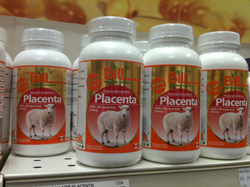 yes, this really is sheep's placenta.
yes, this really is sheep's placenta. 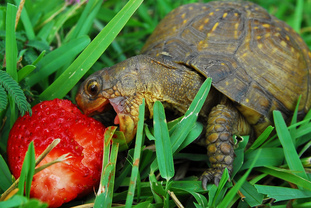
Most students don’t eat a healthy balanced diet. When you survive on pizza, junk food, frozen yoghurt, Red Bull, and coffee, your body ends up with a lack of essential vitamins and minerals.
A multivitamin can help, but the best option is to consistently eat nutritious wholefoods, mostly plants, most of the time. If it’s too late for such sensible preparation, B vitamins strengthen brain functioning so try some Berocca if you’re desperate. Iron, calcium, and zinc can boost your body’s ability to handle stress – you could temporarily supplement with these but to really go for gold, get it in its original packaging i.e. EAT REAL FOOD.
9. Snack intelligently.
In some countries, students are given a five- to ten-minute break in the middle of a long exam. Hello cheat sheet! But if you’re not amongst the lucky few cheaters, carry healthy snacks, such as dates, raw homemade chocolate, almonds, walnuts, or fresh fruit for such times, to keep your energy high. People used to think I was insane to bring medjool dates into a four-hour neurology exam, but I bet they would have given their left arm to have one of those babies at 3 hours 30 minutes into that hell hole. Avoid refined sweets as the energy high could be followed by an energy crash during your exam. And finally...

Many students (and people in general) get into the habit of studying or working late into the night, hoping to cram in a little more information into their already exhausted brains. Instead, on the night before the exam, stop studying in the early evening.
After that, take it easy: eat your dinner mindfully, pack your stuff for the next day, take a soothing shower, set a couple of alarms and head to bed early with some lavender essential oil on a cotton ball under your pillow to help you snooze. You’ve done all you can (maybe). To function at your best on exam day, you need not only the energy that comes from healthy nutrition, but also the energy that comes from adequate, restful sleep.
Good luck!
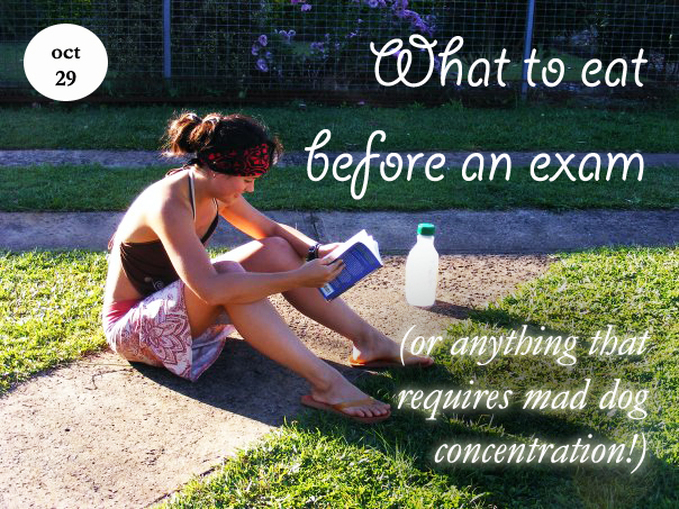


































 RSS Feed
RSS Feed



